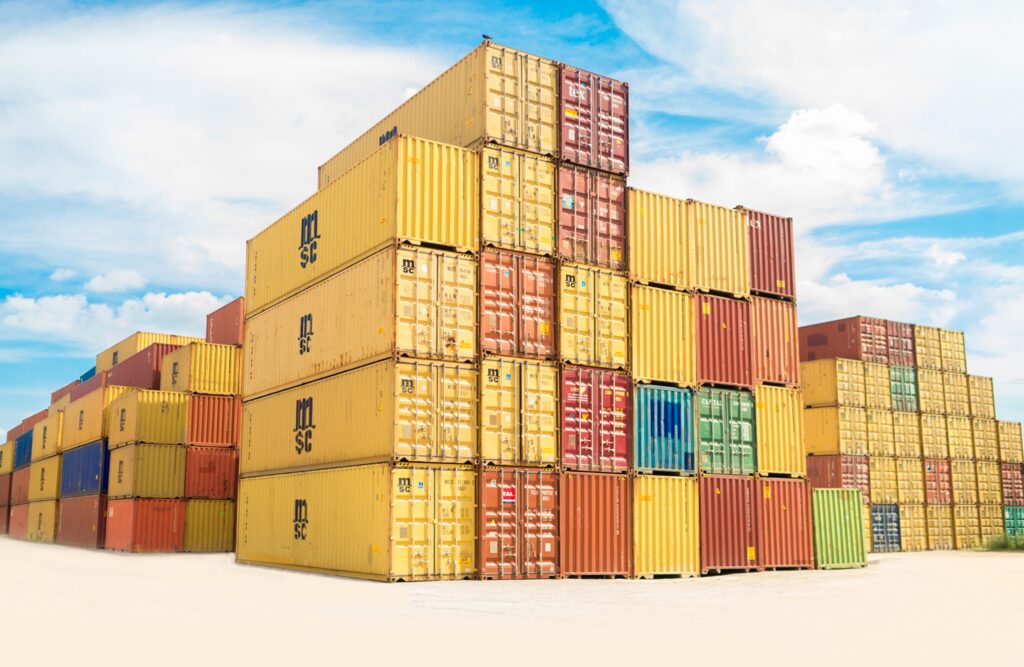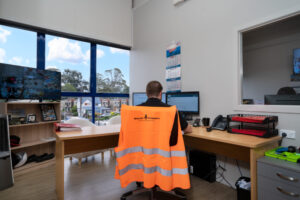Inco terms are a set of codes that outline and specify the terms of transport on a purchase of goods between buyer and seller specifically what the buyer pays for and what the seller pays for in regards to the transportation of the goods from the seller to the buyer, prior to inco terms much confusion happened when buying goods internationally about who paid for what in regards to getting the goods to the other party so the ICC (International Chamber Commerce) decided to formalize terms known as INCO terms so when you bought goods under the specified Inco term there could be no confusion about who pays for what in regards to transport between the buyer and the seller.
The latest version of Inco terms is from 2020 and we have compiled the below list for your reference to the most common inco terms.
EXW – this inco terms is commonly referred to as Ex-Works
This means the seller will have the goods ready for transport at the location specified to the seller generally the factory of manufacture. This is all the seller is required to assume the cost for all the costs from that point including clearance through customs in foreign countries is assumed by the buyer. This Inco term is common in countries with great trade relations. It also puts the most financial obligation in relation to transport on the buyer and the least possible on the seller. EXW prices for goods should be substantially cheaper than other terms of sale as the transport costs are not sunk into the cost of the product which is quite often standard practice worldwide.
FCA – Free Carrier to named place
Buying on FCA means the seller will pay to get the goods cleared and to a named location as agreed usually a port or distribution hub from there the buyer will take on all the costs. FCA is not a very common inco term however can serve a purpose when it works such as hard to arrange a carrier we had a customer use FCA terms as Bullock carts needed to take the goods to a trucking depot in Myanmar as no roads went to the village that the product was made in and we had not contacts with any bullock transport in Myanmar to arrange it for them under EXW terms.
FOB – Free On Board
Free on Board basically means that the supplier pays for everything up until the point the cargo is on board the boat ready to depart from the closest origin port. The buyer then takes care of all costs including the ocean freight and destination fees. This terms keeps control of the freight in the buyers hands and ensures no third party freight companies other that your preferred provider dip there hands into the process and take a cut. It is an extremely common term in shipping and the ultimate way to buy to ensure no hidden costs especially from origins in Asia where freight is often pitched as free or negligible, however you receive huge costs on arrival in New Zealand. Talk to us today if you are buying goods on CFR CIF terms from Asia or any terms mentioned below FOB in this list as its likely we can save you a lot of money by changing over to FOB buying terms.
CFR – Cost of Goods and Freight
This INCO term is very common and is regularly used by suppliers to control the shipping and freight process all the way up until the time the goods have arrived at the destination port closest to the buyer at that point responsibility for costs transfer to the buyer, usually we discourage the use of buying on this term but in some cases it is the best way if you are buying on this term then give our team a call we are happy to give you a costs analysis so you can work out if there is a cheaper more efficient way of shipping.
CIF – Cost of goods, Insurance, Freight
This INCO term is very similar to the above Inco term it is also regularly used by suppliers to control the shipping and freight process with one extra part they also insure the goods for transit all the way up until the time the goods have arrived at the destination port closest to the buyer at that point responsibility for costs transfer to the buyer, usually we discourage the use of buying on this term but in some cases it is the best way if you are buying on this term then give our team a call we are happy to give you a costs analysis so you can work out if there is a cheaper more efficient way of shipping.
DAP – Delivered at Point
This is another inco term and used quite often when a buyer doesn’t want to have any cost incurred for getting goods to NZ under normal circumstances this hands all the control to the seller of the shipping process and we recommend against it in most cases however it does have its uses especially in low value transactions and non sale of goods and some export markets from NZ. The only responsibility of the buyer is to have the goods customs cleared everything else getting it delivered to the point specified is born by the supplier.
DDP – Delivery Duty Paid
This term is similar to the above term and is common in shipping terminology it basically puts all the responsibility and financial cost of getting the goods to the buyer on the sellers shoulders including taxes in destination. For imports to NZ that would mean GST which is claimable by NZ Businesses revert to overseas supplier which would then not be reimburses which could inflate your goods purchase price unnecessarily. Most case for importing to NZ we recommend not using this term from buying goods however to export of goods it maybe necessary for some customers overseas as always we are happy to give you a free assessment of your inco terms and make sure it’s the most efficient way of getting your products to market export or import.
Full chart of inco terms





